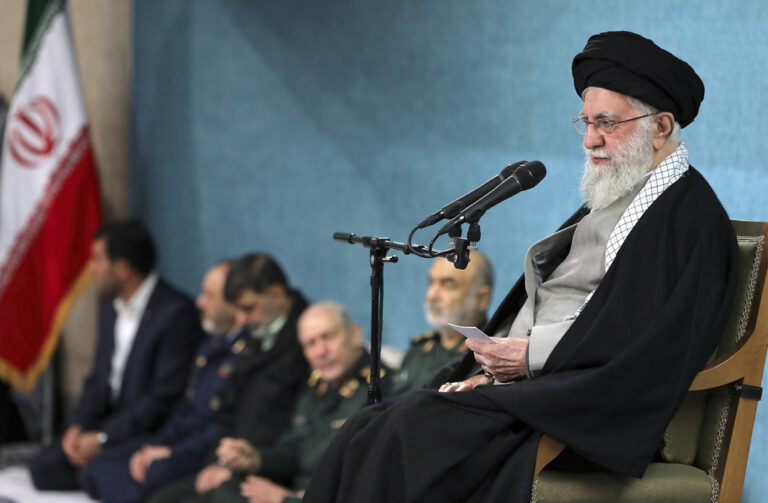It’s that time of year again when parents already stretched thin by tuition and groceries face a new financial hurdle: summer camps. If you’re not familiar with what I’m talking about, take a look at recent ads in Jewish magazines and newspapers. We haven’t even hit winter, yet parents are being bombarded with camp ads pushing all sorts of “incentives” to draw kids in. But it’s not the timing that’s the problem—it’s what these camps are selling. Gone are the days of fun and relaxation. Today’s camps are promising a luxury experience, designed to pamper kids with every indulgence imaginable.
Let’s start with the cost. Camps are charging astronomical fees that most parents simply cannot afford. I recently saw one charging $5,000 for just two weeks—and that’s per child! Imagine multiplying that by several kids, and you get a debt nightmare no family should have to endure. But here’s the kicker: saying “just don’t send your kids” isn’t as simple as it sounds. The social pressure on kids to go to these camps is relentless. It’s nearly impossible for parents to say no without their children feeling left out or ostracized.
I’m not blaming camp directors for this situation. For many, camps are their livelihood, and they have every right to charge what the market will bear. If parents are willing to pay, why shouldn’t camps raise their prices? Camp is, after all, a luxury—not a necessity.
Which brings me to my main concern: what values are we teaching our children? With these high-cost experiences, kids are being conditioned to believe that luxuries equal enjoyment and that happiness can only be achieved through constant indulgence. In a time when many families are struggling just to make ends meet, we’re instilling in our children a dependency on luxury that is both dangerous and unsustainable.
When I was a child, camp was about simplicity—time away with friends, a break from the hustle and bustle, a chance to recharge. But today, kids are taught they need one thrill after another, and anything less is deemed inadequate. The message they’re receiving is clear: “Normal life is boring, and only by having the best of everything can you truly be happy.” This is a perilous path that we’re setting them on, one that leads to entitlement and a loss of appreciation for life’s simpler pleasures.
I strongly believe it is time for rabbanim to step in and set boundaries. This runaway train of materialism is hurtling toward a cliff, and if we don’t act soon, we’ll all be paying the price. Let’s find a way to rein in this insanity before it erodes not only our finances but also our values.
Sincerely,
A Very Worried Parent
The views expressed in this letter do not necessarily represent those of YWN. Have an opinion you would like to share? Send it to us for review.












24 Responses
If you didn’t like it don’t buy it. And turn around and teach your kids why we don’t like it. It becomes a learning experience for them. Don’t place your responsibilities of training your children on “rabonim stepping in”. It’s cowardly
Oh gosh,
ANOTHER ONE!
Why?
I’m so fed up with these opinion pieces.
Is YWN getting paid for them?
Very good and valid points. As to your last paragraph – when you see Rabbonim stand up and take a stand on the plague called seminary aka “sem”, maybe maybe you can count on them to do something about camp. So far, it seems nothing, like positively nothing gets done. But if there’s no money for kollelim, oh boy do we hear about it. I think Rabbonim are afraid to get involved today. Noone has real courage.
These mailbag articles are certainly striking a cord. See how many responses come in.
They are resonating because the average frum family is tapped out and struggling to keep up. Yet, the list of “to-dos” are relentless.
Right after the camp deposit season will be Chanukah vacation then – yeshiva week.
Who is up for a reset button on all of this?
@huhhh
The truth hurts. These are all problems that need to be addressed, burying them under the rug doesn’t help anyone. If you can’t handle the heat, stay out of the kitchen.
I can’t agree more to this. What happened to good old fashioned camp and fun activities. Using your creative mind of having fun. I’m a very young mother who sees that the young girls can’t even keep up with this crazy intensive camp programs. They come home from camp and all they want to do is sleep for the next few weeks cuz they are all bombed out. I’m not saying to do a dull program but I’m sure there can be a happy medium that won’t put the parents thru a financial strain.
Why are you only mentioning camps what about all the other “Out-Of-Control Luxury Indulgence”?
And so far I didn’t heat what YOU are planning to do about it, Mr big talker?
To Uncle Mo for the record Hagaon Rav Shmuel Furst from Chicago one of the last talmidim of rav moshe Feinstein, he made a big public stand about seminary a few years ago. He said it’s not necessary and its hurtful financially for most people, he was vehemently against it.
The same way the country just turned Red from Blue because the people want Change. It’s time this Yiddishe country needs change. The lifestyle we live in with such high rents cost of living, which the average person can not afford and we still sail on this sinking boat.
Burech hashem we see a break thru in expensive lavish chasenes which the average bread winner is not ashamed to marry off his child in a Takunes wedding hall. We need to start looking how to curb all other expenses.
I’m a Rav. We can’t do anything. Society today can’t be controlled by edicts (at least not in the non-Chassidish world). Any other suggestions how to solve the problems you’re describing?
Many of the wonderful opinion pieces here end with a call to Rabbanim to solve the problems. When was the last time that we were able to change one of these societal issues?
No one has to send their kids to the 5k/2 week camp. You have a choice to not buy it. You don’t have the right to demand that it not exist. Teaching your kids about fiscal responsibility isn’t abuse.
The boundaries that you think rabbanim need to create are actually values that are best learned at home.
The exact same conversation happens between camp directors in a similar vein.
The discussion is essentially what can we all agree to cut out so we can try to keep our prices down.
Unfortunately, the same peer pressure that is “forcing” you to send to a camp that costs $20k for the whole summer is preventing these camps from cutting costs.
This issue, in my opinion, gets to the heart of the matter as to why Yiddishkeit today is not a journey in religion. The insurmountable, 24/7 obsession with materialism even more so among the yeshivish Olam has me believing that all this learning is for naught. Learning today in all yeshivas is only an academic exercise. The continuous delving into money, money, money is sickening. I fail to see authentic Yiddishkeit in USA. In Israel, you can still find isolated locations where materialism is not the order of the day.
“I’m not blaming camp directors..” yes you should be blaming the camp directors as it’s ALL about making money! How much of those $5000 per child goes to the camp director’s pocket? But it’s also about competition, if one camp doesn’t off ALL those unnecessary unhealthy luxuries they are deemed to be “nebby” – but this is again a matter for the camp director’s to address. You can give the children the best time in the world with the least luxuries, just try.
I agree that the camps are teaching the kids the wrong attitude. When I was a camper and then a staff member the activities were much more wholesome. It has become a contest between the camps in luxury experiences. The seminaries in Israel are also a luxury. It is not necessary for girls to go after so many years in elementary and High school. If they haven’t learned proper hashkafa in 12 years, something is wrong. The only girls that may need seminary, are the ones who want to teach limudei kodesh.
Dear author,
While I assume you have the best of intentions, the reality is that the problem is not the camps, a little more on the rabbanim and alot on us.
It’s not the rabbanims job to dictate how our middot are as so much it’s their job to model and encourage certain behavior. The dictation comes from hashem and the torah and that is the standard we are to apply to.
To me this point is really just another of the “have nots” who want what the “haves” have.
My neighbor has a brand new car and I now want one too.
My neighbor is building a bigger and better house and I want one too.
My neighbor just went on a trip around the world with his family and I want to do that too.
Our eyes and wants have grown and grown and we are therefor breaking “don’t covert…” one of the 10 commandments each time. This is what the rabbis must remind us.
Shlomo hamelech said there will always be those who have and those who have not. Even the gemara is filled with stories about rich tannaim and amoraim who lived extravagantly while others who were medium to poor.
The problem is not new. The items are different. The torah is the same and so is the solution.
Teach yourself to be happy with your lot and don’t crave your neighbors
I’m not sure which camp you sent your kid to, but I paid under $2000 for 4 weeks, which is about $700 in 1985 money.
Just send them to a cheaper camp and stop whining.
Someone ought to open a homestead cabin camping type experience. Fishing, wilderness survival skills and cooking on an open fire.
It’s healthy and cleanses the soul and is humbling
I agree that Rabbonim can not create edicts that will accomplish anything. However, Rabbonim can be convinced that the system is broken and not just throw up their hands and say, “If you can’t beat em, join em.” Where I live, one respected Rav made a lavish aufruf (public affair) for his son. He also regularly utilizes his tzedaka discretionary fund to pay for indulgences for other families that he feels are normal. Instead of saying, “That expense is unnecessary,” his pity gets the best of him, and he encourages it.
Honest spirit,
Yes; you are right. I forgot about his speech. But the reason I forgot is exactly what I really mean. One Rov, a big one indeed, in Chicago actually said something about it. Why is nothing about this said by Agudah Conventions, by Torah Umesorah conventions? Why? When not a word is heard about it, many think it’s a necessity. I have personally asked a few Gedolim and Menahelim of schools. So far, I have been told, in most cases, seminary in Israel is not necessary. So why is it not discussed?!
As for this letter – I suspect you’re referring to “traveling” camps? I do agree that the pressure today is insane and in many cases, it’s very hard to say no to our children without them literally feeling neglected. But I personally have not found this to be the case when it comes to camp. Can’t you tell your child to go to a “regular” camp? Most camps cost some $2500-2800 for 4 weeks. Way above what my parents paid but still not the 5k you mentioned.
Rocky
Have you ever learned hilchos tzedaka? A wild guess? No. Because if you would have you’d come across a halacha from the Torah called די מחסורו. Which means that a community is obligated to help people with their needs based on societal norms. This is a very discretionary point and that’s why it’s reserved for rabbonim generally. So please stop thinking you know better than your rov. I have to assume that the rov knows what he’s doing
There is no halachic requirement to send one’s children to summer camp, and arguably this is no more than imitating the goyim.
This op-ed about luxury camps really got under my skin. I get it—these camps can feel over the top, and yes, there’s pressure on parents to keep up. But the idea that rabbis or anyone else should ban them? That’s just ridiculous. Let’s face it, even if the biggest rabbis of our generation came out and said, “No more luxury camps,” people would still ignore them. They’d just say, “He’s not my rabbi,” or “Who is he to tell me what to do?” That’s the world we live in today.
The bigger issue isn’t about camps or bans—it’s about parenting. It’s about taking responsibility instead of hoping someone else will step in and do it for you. Just this past winter break, I took my family on a simple trip to Pennsylvania, two hours from home. I had hotel points, so it didn’t cost much. Could I have taken them to Florida like everyone else? Sure, but I didn’t need to. It wasn’t necessary. And guess what? My kids still had a great time.
The problem is, we want to point fingers at the world around us instead of looking in the mirror. We say we don’t want our kids going to luxury camps, but meanwhile, we’re driving brand-new cars and living in massive houses. You don’t think kids pick up on that? If we want our kids to understand what’s important, we have to live it ourselves. I drive a 2014 Toyota RAV4. Sure, I get jealous when I see someone with a shiny new car—it’s human nature. But those moments force me to pause and reflect. I recognize that jealousy and that desire to keep up, and instead of letting it control me, I use it as a chance to improve. I ask myself, “Do I really need it? What lesson would I be teaching if I gave in?” And more often than not, the answer is no. That self-awareness is what helps me stay grounded and pushes me to be better—not just for myself, but for my kids, who are always watching.
This isn’t about what you can afford. It’s about teaching your kids—and yourself—that you don’t need every luxury just because it’s there. You don’t need to go to a luxury hotel for Pesach. You don’t need to send your kids to a luxury camp. You don’t need to chase what everyone else is doing. And honestly, when you tell your kids “no,” they see it. They get it. They’ll learn to say “no” too.
So, enough with asking rabbis or anyone else to fix this. The solution isn’t in banning things—it’s in raising our kids to understand limits and values. It starts at home. Let’s focus on that instead of trying to make the world do the parenting for us.